Which makeup mirror?
In this step-by-step guide, we will show you how to choose a mirror that will meet your needs, match the style of the interior and help you achieve the perfect effect without compromise.
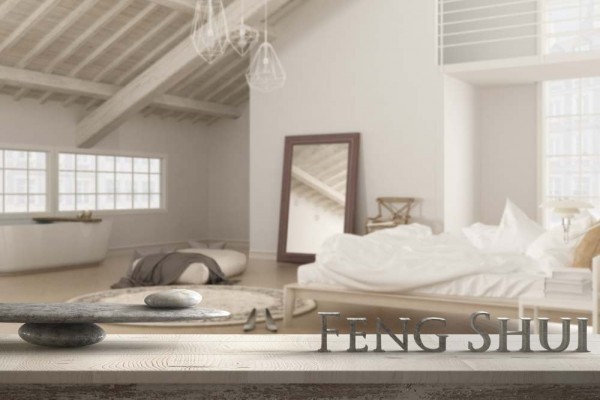
In the realm of interior design, the incorporation of Feng Shui principles introduces not just aesthetic appeal but a profound sense of balance and harmony to living spaces. At the heart of this ancient Chinese philosophy is the concept of Qi (chi) energy, an omnipresent force that flows through every being and object, influencing our well-being and fortune. In this guide, we delve into the intricate relationship between Feng Shui, Qi energy, and the strategic placement of mirrors in your bedroom to foster an environment that supports vitality, peace, and positive energy.
Mirrors, with their reflective properties, play a significant role in Feng Shui. They can double the energy of what they reflect, amplify light, and create an illusion of space. However, when placed facing the bed, mirrors introduce a flurry of issues that disrupt the serene energy essential for restorative sleep.
This configuration is believed to attract and trap negative energy, leading to restlessness, magnification of worries, and even health issues over time. The constant reflection of one’s own body is said to invite the energy of scrutiny and self-criticism, hindering the deep, unburdened rest that is crucial for rejuvenation.
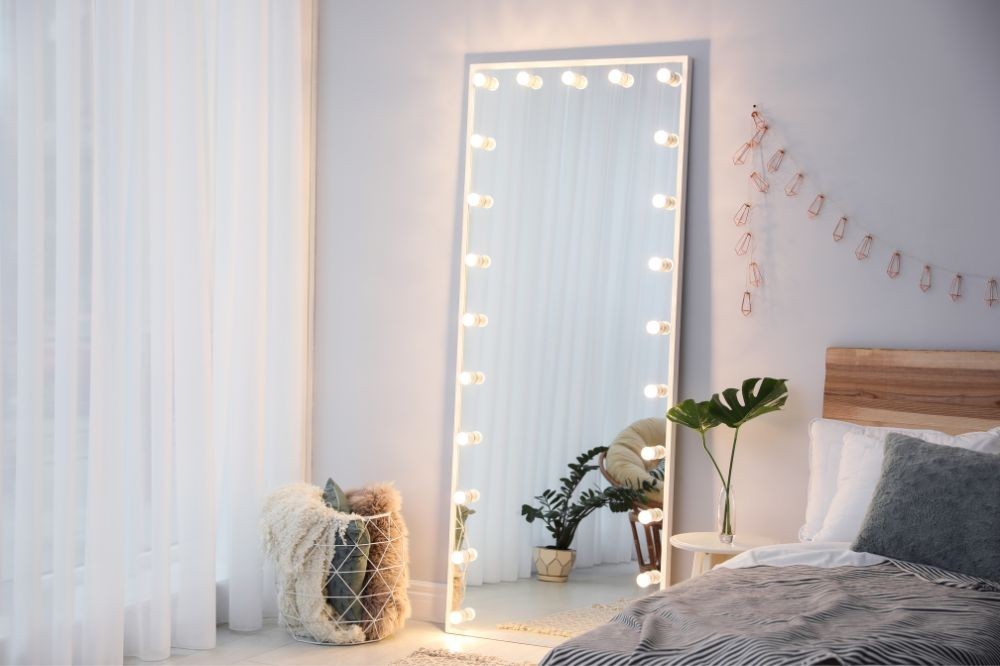
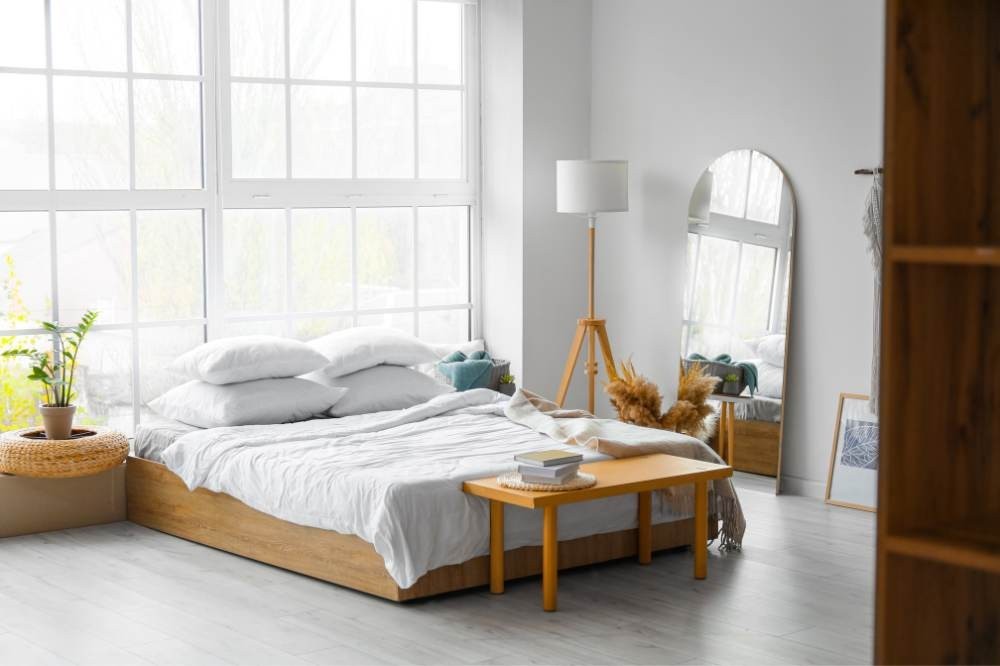
Feng Shui, literally translating to "wind-water," is an ancient art and science developed over 3,000 years ago in China. It's an intricate doctrine that teaches how to harmonize individuals with their surrounding environment through the meticulous arrangement and orientation of space according to flows of Qi energy.
The core principle of Feng Shui revolves around the Bagua, or the energy map, which is used to determine areas of a space that correspond to specific aspects of life. The goal is to arrange those areas to enhance the flow of Qi, thereby improving health, wealth, and happiness.
Here's a concise list of Feng Shui principles:
Qi is the fundamental concept in Feng Shui, representing the life force or cosmic energy that permeates everything in the universe. It's this energy that binds the universe, earth, and humanity together. In the context of your home, Qi flows in and through spaces, influenced by their layout, orientation, and the objects within them.
Good Feng Shui aims to optimize the flow of Qi, creating environments that are aligned with nature and imbued with positive energy. When Qi flows freely, it nourishes your space, promoting vitality and well-being; when blocked, it can lead to stagnation, discomfort, and misfortune.
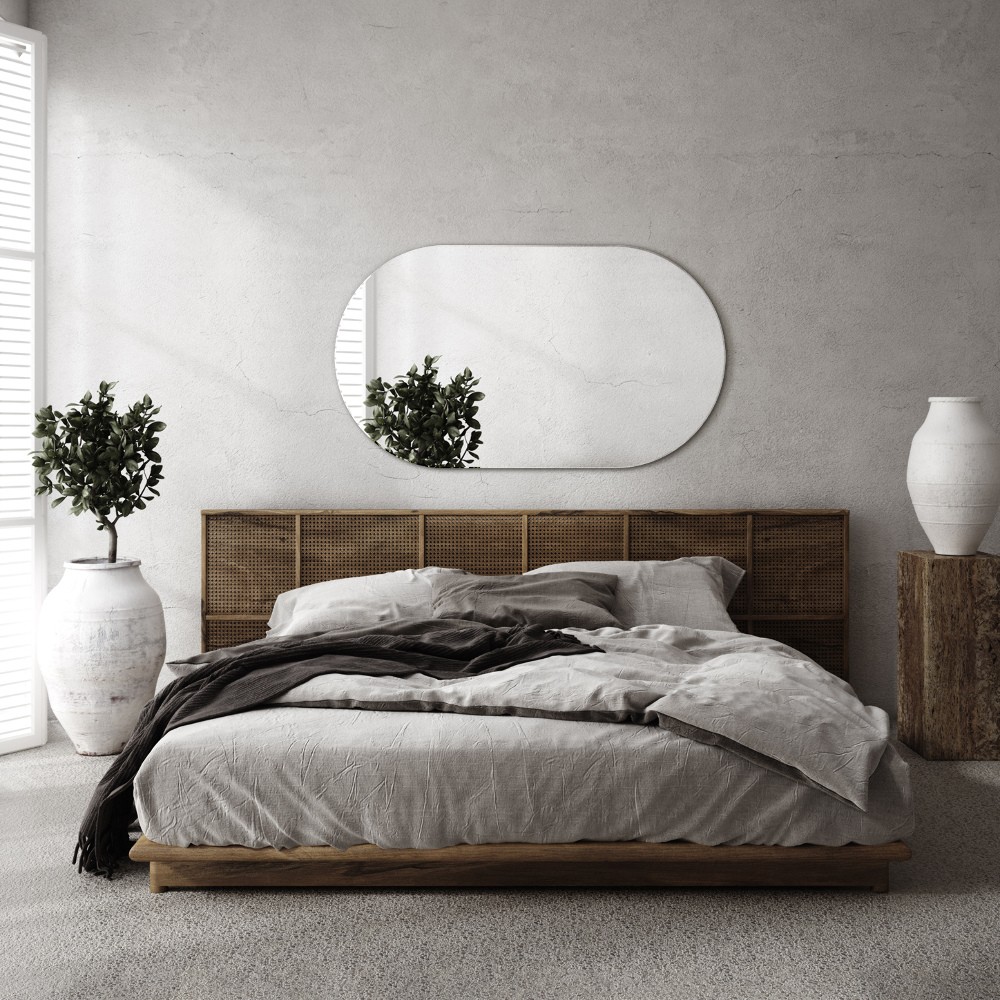
Positioning mirrors directly in front of the bed is one of the most common Feng Shui missteps. This placement is believed to not only reflect and amplify worries but also to disturb the soul. According to Feng Shui principles, during sleep, the soul leaves the body to travel in the astral plane. A mirror reflecting the bed could startle and confuse the returning soul, leading to disturbances in sleep, including insomnia and nightmares. Furthermore, mirrors reflecting the bed can symbolize the presence of a third party in intimate relationships, fostering discord and misunderstanding.
The key to harnessing the positive aspects of mirrors without inviting unintended consequences lies in their strategic placement. Mirrors in a bedroom should be positioned such that they do not directly face the bed. A good location could be on a side wall, reflecting a beautiful view or a piece of art, thereby doubling the beauty and positive energy without disrupting the peaceful energy needed for rest. If your room layout necessitates a mirror facing the bed, consider a decorative cover that can be closed at night to shield the bed from reflection.
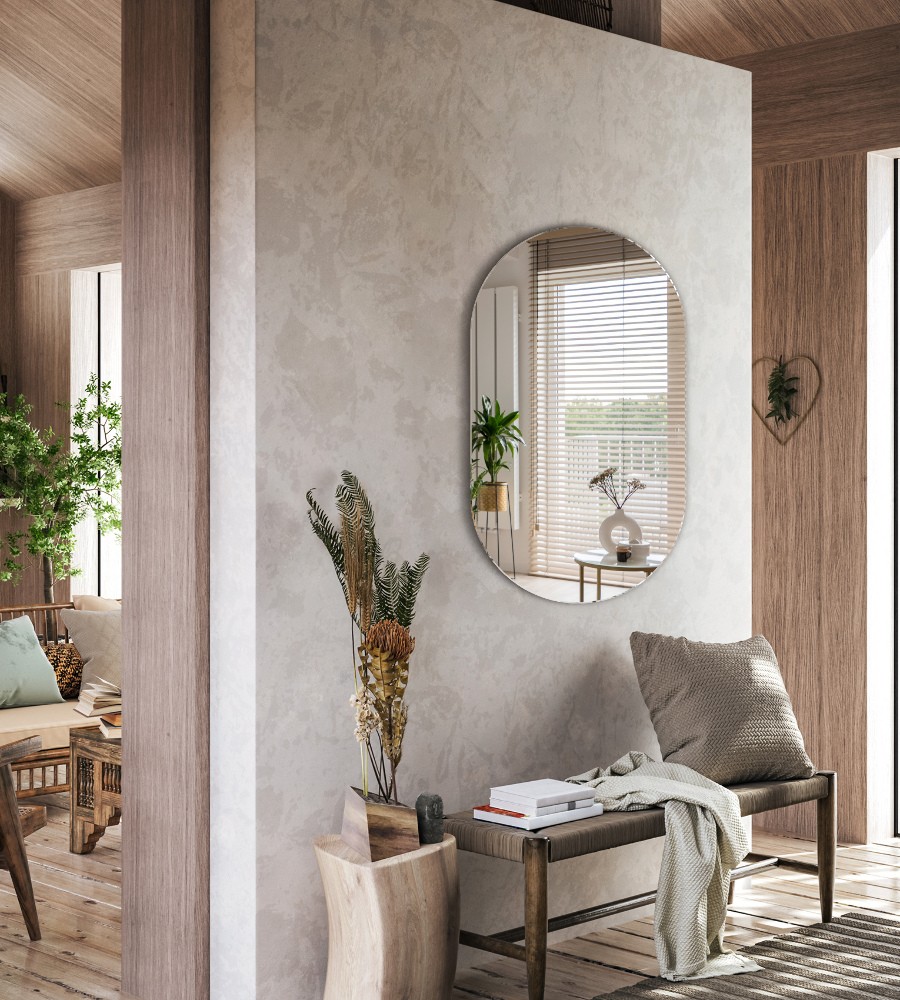
When selecting mirrors for your bedroom, opt for ones that resonate with the principles of Feng Shui. Oval or round mirrors are preferred as they symbolize continuity and the smooth flow of Qi, unlike sharp-edged mirrors which can cut the flow of energy. The frame should complement the room's decor, embodying either the Wood element, for growth and vitality, or Metal, for clarity and precision. Ensure the mirror is placed at a height where it reflects your best self, promoting a positive self-image and reinforcing your intentions for good health, happiness, and prosperity.
Incorporating Feng Shui principles and mindful placement of mirrors in your bedroom can significantly influence the flow of Qi energy, transforming your space into a sanctuary of harmony, balance, and positive growth. By understanding and applying these principles, you invite not only aesthetic beauty into your home but also a profound sense of well-being and contentment.
In this step-by-step guide, we will show you how to choose a mirror that will meet your needs, match the style of the interior and help you achieve the perfect effect without compromise.
Two mirrors in the bathroom are not only a trend, but also a functional solution. Check when they work, how to choose them and how to avoid arrangement mistakes.